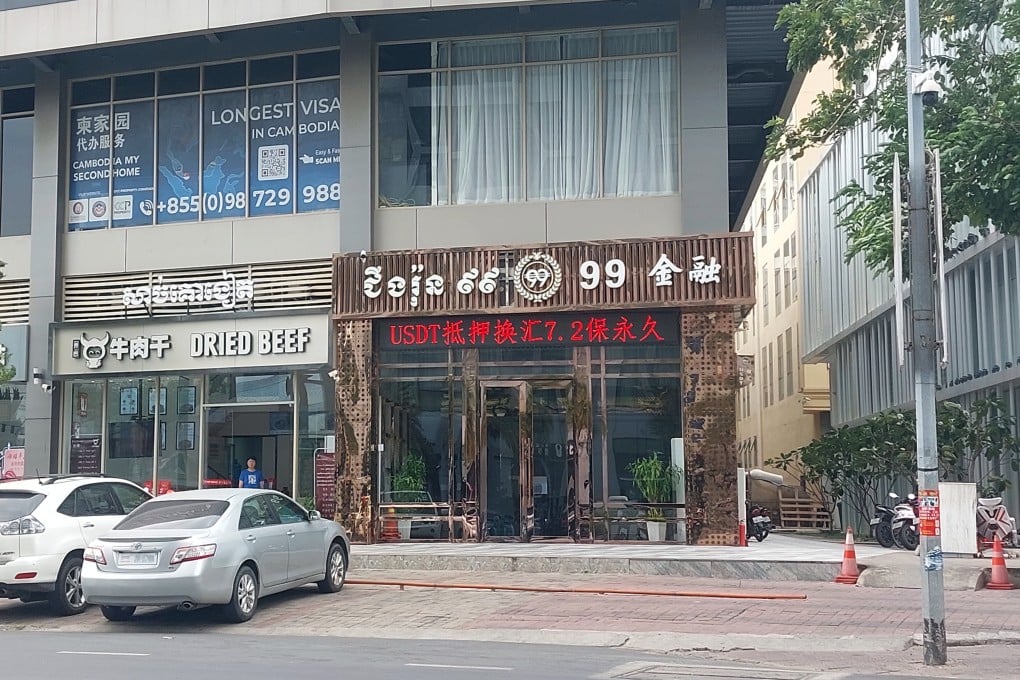Advertisement
In Cambodia’s ‘underground’ crypto economy, Tether becomes coin of choice for Chinese-linked activities
- Tether is banned in Cambodia but is frequently used to move money in and out of China, for gambling, and laundering money
- It also appeals to crime groups running online gaming and cyber scams in Southeast Asia, where officials are unable to keep up with the illicit financial flows
Reading Time:5 minutes
Why you can trust SCMP
4

In pockets of Phnom Penh frequented by Chinese expatriates, the scrolling neon signs at 24-hour currency exchanges offer to trade yuan for Tether, the cryptocurrency of choice for moving money in and out of China, gambling and cashing out the gains of Southeast Asia’s cyber scams.
Like all cryptocurrencies, Tether (or USDT) – a so-called stablecoin because its value is tied to the US dollar – is officially banned for trade in Cambodia.
Yet security experts say it has fast become an integral part of the country’s shadow economy; with a low fee and no restrictions to move, hide and launder money at speed.
While currency exchanges in Phnom Penh also offer legitimate trading and a daily workaround to China’s onerous currency controls for the city’s Chinese community, Tether’s role in Cambodia’s vast dark economy is now falling under increasing scrutiny.
In November, the US Department of Justice seized nearly US$9 million in assets it traced to more than 70 victims of online scams, after conducting an investigation of crypto wallets with Tether Holdings, the company behind USDT, and the crypto trading platform OKX. Tether said it froze an additional US$225 million tied to ‘pig butchering’ cyber scams in Southeast Asia.
Advertisement